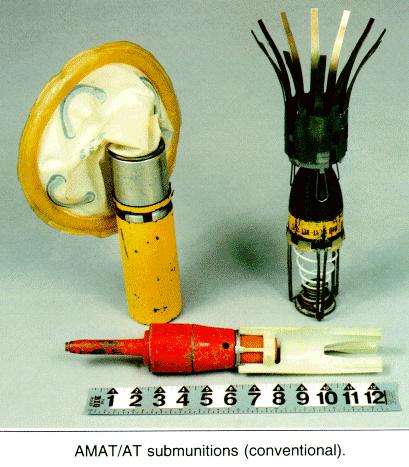
|
||||||||||||||||||||||
|
Friday 28 February 2003
Random Interesting Thing
Calamity Probability Meter The new Rolls-Royce Phantom gets reviewed in the Telegraph:
I have always preferred British car journalism to American. Posted by tino at 18:47 28.02.03
Police-State Watch
More on ‘Public Drunkenness’ Some of the cases resulting from the Fairfax County Police’s raids on bars in December have come to trial. These are the raids where people were arrested for ‘public drunkenness’, allegedly as part of an effort to curb drunk driving. Whether the people were planning to drive anywhere — or whether they were particularly drunk, apparently — was not much of a factor in determining whether to arrest them, though. The Washington Post tells the story of Daniel Crowley, one of the people who was arrested:
Crowley was sentenced to 25 hours of community service to repay his debt to society for allegedly being drunk in the noisiest bar in Reston — and this in a state and county with such serious money problems that the prisons are cutting back on feeding inmates, the DMV is closing offices, and many other random things have been cut, including the hours that state liquor stores — which actually generate revenue — are open. Good to know there’s still enough money left for the police and courts to waste their time on this garbage! Posted by tino at 10:00 28.02.03
Wednesday 26 February 2003
Government Idiocy
Life in Washington A letter to the editor in today’s Washington Post perfectly depicts the general competence of the D.C. government:
The Post titled this letter ‘Zero-Sum Service’. Of course, the sum is actually a good deal less than zero, since the city is spending money to achieve this zero sum. And it’s interesting that the writer, a Washington resident, gives a description of the second ‘truck’, rather than calling it a street-sweeper. If he’s lived in Washington all his life, it’s possible he’s never seen one before. Posted by tino at 19:51 26.02.03
Tuesday 25 February 2003
General Idiocy
Arguments and Logic In today’s Washington Post, Richard Cohen writes a column headlined ‘Antiwar And Illogical’, in which he calld Rep. Dennis Kuchnich, a Democrat from Ohio and a man who’s running for president, a fool. In those words. The Washington Post is a liberal newspaper. Cohen bases his comments on Kuchnich’s performance on “Meet the Press” this weekend, where he repeated the allegation that the pending war with Iraq is all about oil. Richard Perle, also on this weekend’s “Meet the Press”, took exception to this, to put it mildly.
The column goes on to deal with Dean and his characterization of the United States’ determination as “unilateral”. Unilateral, that is, except for the support and agreement of the UK, Spain, Italy, the Netherlands, Poland, the Czech Republic, Kuwait and Australia, among others. And these are professional politicians making these arguments, not random idiots in the street. I don’t mean to say that it’s not the case that a lot of politicians are idiots; but it’s hard to accept that these people are so uninformed and naïve as to believe that war on Iraq will help the oil industry (it won’t), or that the American position lacks broad democratic support (it doesn’t). These politicians simply oppose the war. I am sure they have their various reasons for opposing it, and there’s nothing wrong with having concluded that war is not the best option at this point. I, and a lot of others, have concluded that it is, but given different information, different values, and different expectations, it’s perfectly reasonable that someone may have reached the opposite conclusion. The trouble is, very, very few of the anti-war arguments that I’ve heard — and none of the anti-war arguments I’ve heard from positions of power — are coherent. They all require you to a priori believe things that just are not supported by evidence or deduction — or, in some particularly egregious cases, things that are clearly disproved by the best available evidence. The truth doesn’t matter, if you shout loudly enough. Most of the arguments I disagree with these days — not just the anti-war arguments — strongly seem to be based on a willful ignorance (both what we normally think of as ‘ignorance’ as well as ignore-ance, i.e. plugging one’s ears) of reality; it’s the result of holding some opinion and then constructing an argument to support it, rather than holding an opinion because logic and your available information leaves you with no choice but that opinion. Viewpoints in opposition to your own can be quite valuable, whether they point out holes in your position or whether they bring you to a clearer understanding of the fundamental difference between what you and the people you disagree with believe. Incoherent arguments, on the other hand, merely tend to polarize opinion, and change the matter from a disagreement into a fight. The merits of the various arguments are forgotten entirely, and the disagreement is ultimately settled by a proxy for argument, such as combat or political maneuvering to destroy your opposition. The problem with that is that the winner is then the side most skilled at political machination, or the person who’s physically stronger — not the person whose conclusion is better. This shift from debate to dispute — which, despite the fact that I’ve picked on the left as my examples here, is something that afflicts most of the mainstream political spectrum in the U.S. — is deeply troubling. Since the beginning of time, people have decided on conclusions and then manufactured arguments to support them. To me at least, it seems as if this practice is on the rise of late — possibly because there is no politico-intellectual shame attached to making obviously absurd arguments. Nearly every important public policy debate these days is argued from both sides with flawed (at best) premises, and the nuclear bomb of American political debate — the effect of x on the well-being of children — has become a first-strike weapon. The fools need to be identified as such; Cohen’s column is a step in the right direction. If journalism generally moves more toward the kind of confrontational reportage examplified by weblogs, and particularly Ken Layne’s “we can fact-check your ass” statement, it will become more difficult for anyone involved to pass off incoherent drivel as public debate and remain credible in the future. Posted by tino at 16:03 25.02.03
Monday 24 February 2003
General Idiocy
The Suburbs, SUVs, and Unintended Consequences It’s hard to dispute that one of the things that led to the SUV trend is the federal government’s CAFE standards. These rules dictate that the average fuel economy of all the cars sold by a given manufacturer in the United States must be at least 27.5 miles per gallon. “Light trucks”, meaning things like SUVs, vans, and pickup trucks, are not included in this average (they’re counted separately). The CAFE standards killed off the nine-passenger station wagons, because those vehicles couldn’t be made to have both good enough fuel economy and the performance that buyers demanded. The SUV makers and drivers don’t go out of their way to point this out, but a cursory examination will show that an SUV is really little more than a station wagon sitting on a truck frame. As such, it’s a ‘truck’ and counts differently toward a manufacturer’s CAFE average. Other than that, and the fact that most SUVs have four-wheel drive, there’s not much difference. Compare the specifications of the 1996 Buick Roadmaster wagon, the last full-size American station wagon, with those of the current Ford Expedition, the largest and most-vilified of the mainstream SUVs:
The SUV weighs a little more, is significantly taller and has more cargo volume. The station wagon is longer by over a foot, though, and wider by over an inch. These things sold by the thousands back in the heyday of station wagons, and nobody suggested that people were buying them because they were insecure, or stupid, or because they wanted to show off their buying power. It anything, people who bought stations wagons were seen as dull people, people who were so uninterested in showing off as to be worth ridicule for that. Selling the sports car and buying a station wagon was a key part of the transformation from carefree Young Marrieds to solid People With Responsibilities. The station wagon had room for the parents and 2.2 children, and room for the giant loads of groceries that mark suburban life. Since the station wagon boom in the 1960s, the suburbs have only sprawled more, and it’s more likely today than then that little Johnny and Sally will have to be driven around by their parents — and worse, the current safety groupthink holds that kids should never ride in the front seat of a car. Carrying more than two kids thus requires a vehicle with at least two back seats, or a willingness to endure squealing fights from the rear. So people buy SUVs. They’re practical vehicles, and their gas mileage isn’t so bad as to make a difference here in the land of low fuel taxes. Minivans — presumably what the SUV-hating crowd would have people drive instead — usually get better mileage, but not by much at all (the Ford Windstar minivan’s EPA average fuel economy is 20 mpg; the Ford Explorer’s is 17; and the Ford Escape actually gets better mileage than the Windstar), and they tip over during stupid driving maneuvers at about the same rates as SUVs. The SUV, though, has more power and doesn’t carry the negative cultural image of the minivan. The anti-SUV forces are trying to create a similar negative image for the SUV, but it’s not going to work. For one thing, nobody was ever really opposed in any organized way to the minivan, so there was never any kind of ‘rebel’ image that went along with having one. The minivan’s entire image problem is quite the opposite: that some people — a lot of people — see it as signifying that you’re an unthinking conformist. When these people need a lot of vehicular space, they go out and buy SUVs even though a minivan might actually serve just as well. Demonizing SUV owners will likely backfire badly. The majority of the people who will agree with the anti-SUV argument already don’t drive SUVs; and a lot of current SUV owners will be turned into hard-core SUV owners, rather than give the impression that they can be bullied around by people like Arianna Huffington. SUVs, to the extent that they’re undesirable, are a symptom, not a problem. If you’re against the use of SUVs, you should consider that you’re really against the zoning laws, building codes, and high-tax cities that push people to live in widely-scattered houses in the suburbs. And, while you’re at it, you might examine why you think SUVs are so evil, while station wagons and minivans are not. Posted by tino at 23:41 24.02.03
Sunday 23 February 2003
Random Interesting Thing
One-Sixth of the World’s Surface About fifteen years ago, I bought a book called One-Sixth of the World’s Surface from the St. Louis Public Library’s bargain table . It’s a personal travelogue of the American author’s trip through the Soviet Union in 1931. The author is a Communist, or at least a fellow-traveller, and he’s agog at just how wonderful the Soviet Union is — although he finds some cities to be quite dirty. It’s not entirely unlike a pale Red version of Democracy in America. I have scanned in the book, and it’s now available, complete with illustrations, here in Tinotopia. Whether the book is still under copyright I have no way of knowing. It was published by the author in 1932; that copyright would have expired in 1960. If the copyright was renewed in 1960, it would then have run out in 1988, which effectively means that it’s in perpetual copyright, thanks to the Great Perpetual Copyright Scam being put over on us by Disney and the Congress. In any case, the book isn’t being exploited now — web searches turn up nothing — and it’s too interesting to just leave languishing on my shelf. Posted by tino at 12:42 23.02.03
Saturday 22 February 2003
Copyright Issues
The Future of Media? The International Herald Tribune has a story about pop music in China, and how it survives despite near-ubiquitous piracy. Wang Lee Hom, a Chinese pop star and actor who was born and educated in the United States, appears to have become something of an anti-piracy activist in China.
Though the fact that Wang makes enough money from recording music for him to continue doing it seems to directly contradict his statement that the Chinese music industry is “dead”. The IHT notes this as well.
And therein may lie the problem: the rock-star lifestyle. Those of you who are regular readers know that I am, or at least used to be, a fan of MTV Cribs. These days, it’s become a parody of itself, as even Andy Dick tells viewers that they “ain’t a playa” unless they have some specific posession. But even with the schedule packed with B-grade and lower ‘stars’, Cribs still manages to tell the same story, that in the entertainment industry, success appears to be almost totally binary: either you are playing gigs at night and working a regular job during the day, or you have an 18,000-square-foot house with a guitar-shaped swimming pool and a garage full of Bentleys. And you know what the almost all of the people with the Bentleys say? That they love what they do, and that it’s all about the music. The record companies, on the other hand, tell us that it’s all about the money. Without the fantastic payoff of the rock-star lifestyle, they expect us to believe, no decent music would be created. Music, like other arts, has traditionally not paid very well. An awful lot of art of all kinds — from sculpture to painting to music to writing to performance — is undertaken around the world, despite the near-certainty that there will never be any financial return for the artists in their lifetimes. Substitute any other job for that of pop musician, and it’s hard to deny the absurdity: let’s consider computer programmers. Some computer programmers get unbelievably wealthy, far wealthier than even someone like Michael Jackson. Some more get into the Ferrari-and-giant-house league. A great many make it to the Porsche-and-big-house league, and some — particularly those just starting out and those who aren’t very good — drive Chevies and live in townhouses. Imagine now that the universe was changed in some way that resulted in computer programmers having a 1% chance of making many millions of dollars, and a 99% chance of never being able to do much but recoup the expense of the tools of their trade, their computers, chairs, and Jolt cola — and maybe not even that. In that universe, would there be more computer programmers, or fewer? If pop musicians were paid like computer programmers, we’d have much, much more music, and potentially better music as well: the market would make decisions, rather than a small number of label A&R men. It’s probably true that the collapse of music distribution as we know it — which appears to be inevitable — will make the current rock-star lifestyle much rarer. It’ll be a little harder to make millions upon millions of dollars (it’s already very difficult), but it’ll be much easier to make a living. This is what the rock stars and record labels are considering when they complain about ‘piracy’: it’s not that the collapse of the music distribution racket will result in less music, or worse music, or that it’ll make it harder to make money at it. It’s that it’ll make it harder — but still not impossible — to make enormous amounts of money without working very hard. Posted by tino at 22:10 22.02.03
Friday 21 February 2003
Spam
New Spam Tactics Maybe this isn’t all that new a tactic, but I don’t spend all of my time looking at spam, either. Every few weeks I look through the things that my spam filter hasn’t caught, and I try to figure out appropriate rules to ensure that whatever particular tricks the spammers have adopted won’t continue to work. I’ve written before about spammers making strenuous attempts to get around filters. It seems idiotic to me, to go to extra trouble to see to it that your messages get through to people who’ve taken specific steps to not read your message, but then I’m not a spammer, so what do I know? Until recently, the spammers got around people who excluded messages that included words like “fuck” and “viagra” and “cock” and “hardcore” by spelling these things differently or by mixing punctuation or spaces in: “F U C K”, “V.I.A.G.R.A”, “C0CK” (that’s a zero), and “HARDC0RE” (another zero) served them well for a while. It didn’t take too long for people to incorporate this stuff into their filters. A zero surrounded by letters doesn’t normally occur, so a rule to exclude “C0CK” is easy. Strip the punctuation before running the message through the filter, and “V.I.A.G.R.A” is no problem. Assuming that most of your incoming messages are in English, it’s safe to assume that messages containing “F”, “K”, and a lot of other single letter surrounded by whitespace involve someone trying to hide potential red-flag words. The spammers are determined to make money out of this while they can, though, and they’ve now started putting empty HTML tags in their messages, breaking up suspect words. (Warning: I include an excerpt from a sexually-explicit spam below this point. You might not want to read any more if you are of a sqeamish nature.) A spam I got today includes this text:
That’s what you see when you view the message normally. If you look at the HTML source of the message, though, you see this:
All those tag-pairs in there don’t do anything visually; they’re just there to break up certain words so as to make searching for “cocks”, for example, more difficult. However, since nobody actually uses those empty tags in legitimate e-mail — I checked HTML mail generated by AOL and Microsoft Outlook and Outlook Express for this — it’s a simple matter to just look for no-content tag pairs, and, if you find them, to bin the e-mail. Result: the use of empty HTML tags in an attempt to defeat filters actually makes it easier to reliably filter out spam, since only spammers would go out of their way to attempt to get around filters. The spammers and the anti-spam forces are participating in an experiment in evolution that would be fascinating to study in depth. (Unfortunately, spammers do not really publicize their tactics except by mailing out the results to millions of people.) As spam evolves through various attempts to gain exposure, spam-killers evolve to kill the evolved spam. As the killers evolve and become more sophisticated, the evolutionary tactics of the spammers become more and more desperate, to the point where most of these new spam tactics today actually make it easier and easier to reliably detect spam. Eventually, we will arrive at a point where all pracitcal methods of getting spam to slip past filters have been tried and defeated, and the spam wars will be no more. It’s been predicted pretty frequently that war — actual war, the kind with soldiers — would be eliminated by the use of some new technology: gunpowder, airplanes, machine guns, nuclear bombs, etc. that just made war too terrible and costly to contemplate. Every time, these predictions have proven to be false, since of course you don’t have to use nuclear weapons, for instance, to fight a war. Advances in spam-fighting technology, though, are less like nuclear weapons, and more like something you could spray over your cities that would cause explosives of all kinds to magically not explode. The bomb — the spam — is rendered completely ineffective. As the spammers continue to innovate, so will the spam-fighters, until eventually the only unsolicited commercial e-mail that will be able to get through is one that comes from a verifiable source, that’s non-offensive, that doesn’t appear to employ subterfuge to defeat filtering, and that doesn’t offer any of the low-value, low-volume, high-margin products that spam requires — which is to say that no spam will be able to get through. Posted by tino at 15:38 21.02.03
Thursday 20 February 2003
Corporate Idiocy
Ted Turner and The Media A New York Times story today portrays Ted Turner as a nut. Now, this isn’t much of a surprise to anyone who’s paid the least bit of attention to Mr. Turner, but the article further seems to hint at the possibility that Turner himself was responsible for at least some of the disorder that’s plagued AOL Time Warner since the merger.
Over at the Washington Post, though, they’re still happy to print Turner’s blasts (scroll down to the bottom) without comment, even when he seemingly can’t get the name of AOLTW’s chairman right:
Oh, and that AOL-Time Warner merger that Turner thinks was such a colossally bad idea? Turner had 100 million shares of Time Warner at the time, and he voted them in favor of the merger — “with as much or more excitement and enthusiasm,” he said at the time, “as I did on that night when I first made love some 42 years ago.” Posted by tino at 21:44 20.02.03
Wednesday 19 February 2003
Government Mischief
Caviar for Everyone! I’ve written about the tendency of American regulation to require that everyone lead a middle-class lifestyle as one of the main causes of homelessness “problems” in this country. Recently Reason Online had an article about the same thinking baing a major cause of the health-care “crisis”:
Posted by tino at 13:45 19.02.03
Tuesday 18 February 2003
Government Mischief
CDC Propaganda Tip Sheets A few years ago, the big news story was that the government was effectively paying TV networks for weaving anti-drug messages into their programs. Basically, if your programming had enough anti-drug messages in the story itself, you didn’t have to provide the government with free ad time for their own anti-drug ads. I’ve never been able to find the government’s guidelines for what constitutes an acceptable level of anti-drug hysteria in this program, but I have stumbled onto the next best thing: The CDC’s “Resources for TV Writers and Producers”. The idea is that the CDC would like to see more pro-health messages on TV, and they want to make it as easy as possible for the people who make TV to make this happen. The CDC has a website packed full of interesting script tips and case examples, such as this one for chicken pox:
And this one for getting the word out about ulcers:
The that-awful-man subplot is present in a number of the vignettes:
I think I’ve actually seen that one turned into an episode of ER, before I stopped watching it because it had become little more than a one-hour government PSA. There’s one about the importance of not going in public swimming pools if you have diarrhea, about child car seats, the dangers of teen driving (which seem mainly to revolve around the dangers of teens getting incredibly drunk and then driving), and so on. This one, about the dangers of smokeless tobacco — which the government persists in calling “spit tobacco” — takes the cake:
Thus reducing her risk of toe cancer. (Note than no actual spitting is involved in this denunciation of “spit tobacco”.) Posted by tino at 17:46 18.02.03
General Idiocy
Cluster Bombs and HDRs The anti-war crowd has been making a lot of the supposed resemblance of unexploded cluster bomb bomblets and Unexploded cluster bomblets, they say, can’t be easily distinguished from the HDRs, and people are getting blown up. I am suspicious of this. Presumably, even in places like Afghanistan, they can distinguish small objects from large ones. Here are some cluster bomblets: And here is what an HDR looks like: Me, I don’t see the resemblance. One is cylindrical, has fins or a parachute, and is about two inches in diameter. The other is a rectangular package about five by eight by three inches. I can certainly tell the difference, and I expect that even Afghans can, as well. (Remember that before the drops of HDRs began in Afghanistan, when the Left was still predicting mass starvation there, they made the claim that people on the ground wouldn’t know that the packages were.) In any case, the military is changing the color of future orders of HDRs, possibly to blue. This will make the packages harder to see, and undoubtedly some people who would otherwise have survived may starve to death as a result. But the ‘peace’ crowd will be deprived one of their more popular, if specious, arguments. Posted by tino at 00:27 18.02.03
Monday 17 February 2003
Random Interesting Thing
What a difference a day makes…
Posted by tino at 10:54 17.02.03
Sunday 16 February 2003
Random Interesting Thing
Snow! The snow we’ve had here isn’t much by, say, the standards of upstate New York. But it’s a hell of a lot of snow for Virginia, and it’s still coming down, strong and steady. Clicking on any of these pictures will pop up a bigger one.
Posted by tino at 12:19 16.02.03
Saturday 15 February 2003
Movie Review
Movies I Have Seen Recently I have had a ‘Movie Review’ category in the hopper since the beginning, but I have not used it. I figure that gassing about what movies I’ve seen recently will help pad out the entries here, in addition to being marginally useful to those who don’t have the sense to get their movie advice somewhere else. Летят журавли a.k.a The Cranes Are Flying (1957) Soviet films — at least all the Soviet films I’ve ever seen — are solely about Big Ideas. You never get an idea, even an idealized propagandistic idea, of what living in the Soviet Union was like. Daily life in these movies is just the backdrop against which the Big Ideas are unfurled. Stars Tatyana Samoilova, the Soviet Audrey Hepburn. She’s much better-looking that Audrey Hepburn, though. Sweet Smell of Success (1957) Still, it’s unbelievable enough to be strangely interesting, while not so off-putting as to make you antsy for the end. Features Susan Harrison (later to be mother of Darva Conger of Who Wants To Marry A Multi-Millionaire fame), for added visual interest. Resident Evil (2002) I watched it recently solely because of the recommendation of Perry de Haviland of Samizdata. He said it had a “nearly flawlessly executed story, was artfully directed, skillfully produced and very atmospheric” and “In short, this movie rocks”. I would certainly then hate to see a film that Mr. de Haviland thinks could be punched up a bit, because Resident Evil was atrocious. It’s a scary movie that doesn’t so much try to scare you as it tries to startle you. All of the characters — all of them — save Jovovich’s Alice, are either cardboard cutouts or are so annoying and repugnant that you don’t particularly mind when they get killed. Perhaps I’m being too tough; de Haviland is comparing the movie to Tomb Raider, after all. See The Fifth Element instead. Rated X (2000) Characters randomly appear and disappear, and the characters that stick around are not believable. Considering that this was based on a true story — it’s about brothers who are porn producers in the 1960s and 70s — that’s particularly unforgiveable. Posted by tino at 16:30 15.02.03
Friday 14 February 2003
General Idiocy
The UN Credo: Speak Softly, and… Continue Speaking Softly The purpose of the UN, as near as I can tell, is similar to the confrontation-by-friends known as an ‘intervention’. When one friend tells you that you’re turning into a jerk and might want to lay off the sauce, it’s easy to convince yourself — very easy, as a matter of fact, remember that you’re a drunk — that he’s just an asshat and trying to tell you how to live your life. When all of your friends, though, get together and tell you that you’re a problem, you have a choice: either accept that you’ve got a problem, or accept that you have to find all new friends. In a small enough town, this means either living as a pariah or moving away. The difference between what the U.N. does and what individual nations do diplomatically before things degenerate into war is the difference between what a single friend does, and what an intervention of friends does to the drunk. And what we’re seeing now in the U.N. are friends going out drinking with the drunk friend after the intervention. It’s obvious to anyone who is not wilfully blind that the Iraqis are not in compliance with the U.N. Security Council resolutions. Nobody, not even the French or the Germans, disputes that. The best that these countries have to say is that the Iraqis are in less non-compliance than they were previously. The only question is what should happen as a result of Iraq’s non-compliance. France, Germany, and Russia believe that more inspections are the answer — that if Hans Blix & Co. continue to look under rocks in Iraq, that’s good enough, and that will keep Iraq from continuing to develop banned weapons. The United States and its allies believe that bombing is a better plan.
Myself, I tend to believe the U.S. government’s position that Iraq is in posession of banned weapons, and that the Iraqis are actively thwarting the UN inspections. But I have not yet seen any information that incontrovertibly proves this. But in any case the issue at hand is not at all whether Iraq posesses prohibited weapons. The issue is whether Iraq is complying with the UN Security Council resolutions requiring it to disclose information related to its weapons programs, to cooperate with the UN inspectors, and to prove, to the extent possible, that it does not have any banned weapons. Nobody seriously suggests that Iraq is doing any of this, and it’s been pointed out time and again that Iraq’s behavior very strongly suggests that they have something to hide. But the real danger of this behavior on the part of the UN has nothing to do with Iraq, and everything to do with North Korea. That drunken state in the far east chooses to see criticism of and displeasure with its policies and actions from individual countries — the United States, say — as motivated primarily by supposed imperialistic ambitions, and not by any general sense that countries with little or nothing to lose should not be in posession of incredibly powerful weapons.
This is the point of Teddy Roosevelt’s famous advice to speak softly, and carry a big stick: without the stick, and the will to use it, you’ll soon shout yourself hoarse. The Security Council may eventually authorize the use of military force against North Korea if the Koreans continue to use nuclear weapons to threaten and to blackmail other countries. But by choosing peace now with Iraq at all costs, it’s significantly increasing the chances that that cost will be a far more dangerous war with North Korea later. Posted by tino at 12:33 14.02.03
Thursday 13 February 2003
Questionable Statistics
Big Anti-Tobacco and Reality According to the Washington Post,
Which means that this is a $14 billion tax hike, trying to use another $14 billion tax hike and anti-smoking hysteria as a fig leaf.
But the problem is that tobacco-related illness is defined as any illness a smoker has. A tobacco-related death is the death of a smoker. The statistics are so convoluted that I have not been able to verify whether the Big Anti-Tobacco counts accidental deaths as “tobacco-related”. But I don’t have to. “Several health experts”, says the Post, say that this is a “significant shift” as “tobacco-related illnesses climb”. Climb to a fever pitch of hysteria, maybe. The American Lung Association says that “The rate of lung cancer cases appears to be dropping among white and African-American men in the United States, while it continues to rise among both white and African-American women.” The Lung Association also says that the rate of incidence for emphysema, chronic bronchitis, and pediatric asthma declined 5.4%, 1.4%, and .3% respectively from 1998 to 1999, the most recent period for which statistics have been compiled. Big Anti-Tobacco’s own statistics contradict their public statements. Yet we need a new $28 billion tax to combat these rising trends.
(Just like U.S. taxes on nearly everything.)
Which would explain why the United States has the thirty-first smokingest population of women in the world, and the seventy-seventh smokingest men, according to these stats from the WHO (Warning: PDF). Americans smoke less than people in such famously low-tax jurisdictions as Sweden, Denmark, Norway, Canada, the UK, France, Austria, Italy, and Switzerland. It’s not about health. It’s not about protecting people from themselves, as odious as even that is. It’s about a noisy bunch of people who have decided that they do not like smoking, and who have taken it upon themselves to tell other people what they may and may not do. In addition to telling owners of bars and restaurants whether they may allow smoking in their establishments, Big Anti-Tobacco is determined to make smoking more and more expensive (see this for a hint to their real reason for raising taxes). This is probably a wise decision, as a large part of Big Anti-Tobacco’s agenda requires a lot of law enforcement. Those taxes will — already do — result in a black market, though, and in cigarettes being sold by unsavory elements, as happened in Canada when our good friends there had sky-high taxes on tobacco. It could be that this — the creation of a black market — is the ultimate goal of Big Anti-Tobacco, for once you can put an ad on TV linking smoking with terrorism, further meaningful debate will be impossible. Why, though, do these people hate smoking so much? They say that the problem is “secondhand smoke”. Never mind that there’s no reliable scientific evidence that secondhand smoke is dangerous; we’ll accept for the moment that it’s simply annoying. Fine. Why not simply mandate that places that allow smoking be equipped with effective air-cleaners? In Las Vegas, people smoke everywhere. I think you can even smoke in the elevators there, but there’s no smell of smoke anywhere. The casinos want to make sure that both smokers and nonsmokers have no reason to leave, so they solve the problem in a market-friendly way. Not everyone enjoys the profit margins of the gambling industry, of course, and some businesses would have to ban smoking rather than spend the money on air cleaners. But this approach would at least make Big Anti-Tobacco’s position — that it’s about health, not social engineering — more plausible. If you don’t like something, by all means say so. If you want to ban other people from doing something that you don’t like, say that as well. And if you think that something is unhealthy, let the world know. But if you can’t make arguments without contradicting your other arguments, it’s probably best to just sit quietly. Posted by tino at 15:00 13.02.03
General Idiocy
The World’s Worst Test Since you’re reading Tinotopia, it’s safe to assume that you’re an intelligent, well-educated person. Our research shows that 47.8% of you have graduate degrees, and that only 2.4% of those are in physical education. This means that you’ve likely taken a number of standardized, fill-in-the-bubble tests in your life. If you’re intelligent — as we’ve already established you are — you’ve noticed that some of the questions on those tests just don’t make sense. I’m not talking about questions that are beyond your ability — though of course there would be few of those — I’m talking about questions where you know that you understand all the concepts and information involved, but where none of the possible answers make any sense. A good many of these tests, I am convinced, make the most of the fact that the people taking them are presumed to be inexperienced and unconfident, and likely to accept the authority of the test company. That conculsion tends to be reinforced by this, where an experienced professional standardized-test tutor locks horns with the SSAT. This is a long one, so go get a cup of coffee before you plunge in. Just as a teaser, though, here’s one of the analogy questions from the test, the ‘correct’ answer, and the commentary:
Posted by tino at 12:54 13.02.03
General Idiocy
Crying Wolf Update The Baltimore Sun puts together the story of the ‘Amber Alert’ fiasco on Tuesday:
Well, if it’s so “understandable”, you idiot, maybe you should have used a different message, or a different means to disseminate your message. I can’t help but think that if those signs had said “MISSING CHILD” instead of the totally meta “AMBER ALERT” — which is, remember, not to be confused with the textually and chromatically similar ORANGE ALERT, which is something completely different — a lot of confusion could have been prevented. The “Amber Alert”, though, is the pet project of the moment of the The Polly Klaas® Foundation (I’m not kidding, ‘Polly Klass’ is really a registered trademark), so the phrase will be used. It’s hard to argue against these missing-child organizations, which I suppose is the point. They all have heartrending names like the ‘Morgan Nick Foundation’ and the ‘Paul and Lisa Program’ and the ‘Jimmy Ryce Center’. The problem with having outfits like these determine public policy — the Polly Klass® Foundation is currently pushing for a federal Amber Alert — is that nobody questions them (because then you’d be accused of being in favor of child abductions — you don’t hate children, do you?), and they take an absolutist approach. A single missing child — or possibly-missing child — is enough to seriously impede or stop the functioning of a major city.
Posted by tino at 11:17 13.02.03
Wednesday 12 February 2003
General Idiocy
Smoking Crack At The Washington Post Just when you thought that the world couldn’t become more surreal, or the Washington Post’s bewildering and Quixotic attacks on America Online become more, well, bewildering and Quixotic, you find this:
The next paragraph acknowledges the teensy, possibly-relevant fact Road Runner is, in fact, a division of AOL Time Warner. But that still doesn’t excuse cribbing the first three paragraphs of your article from a company’s marketing materials, especially not if you like to think of yourself as a credible reporter, and a credible newspaper. The rest of the article mainly, and competently, covers the turf wars that are the core competency of AOL Time Warner. The best part:
Posted by tino at 18:27 12.02.03
General Idiocy
Crying Wolf, Indeed It turns out that the ‘Amber Alert’ B.S. that resulted in the Emergency Alert System being activated yesterday was based on a fabricated story. There appears to be no comment in the press on the wisdom (or lack therof) of using the EAS for things like this. Posted by tino at 17:39 12.02.03
Tuesday 11 February 2003
Government Idiocy
Brunch in the Big House The Virginia Department of Corrections is, in the name of saving money, serving only two meals to prisoners on weekends and holidays: ‘brunch’ and supper.
This sounds to me suspiciously like the cost-cutting measures that the state took at the DMV — designed as much to create publicity about draconian cuts in state services as to actually save money. How much are they saving?
With about 115 weekend days and holidays this year, this measure should save the state “as much as” $11.50 per inmate per year — which certainly won’t be offset be massive legal fees spent defending suits from prisoners who allege that not feeding them three meals a day constitutes cruel and unusual punishment. That adds up, though — with 31,000 prisoners, that $11.50 per prisoner means over $356,000 a year — which will cut the Virginia Department of Corrections’ costs by .047%. Posted by tino at 16:47 11.02.03
General Idiocy
The Boy Who Cried Wolf At 2:00 p.m. today, I was driving along, listening to WTOP all-news radio from Washington. They had just finished a story on the anti-aircraft missile batteries that were deployed in and around Washington last night, and had then switched to CBS network coverage of the recent increase in terrorist message intercepts. A few seconds into that coverage, the voice cut out and the Emergency Alert System tones came out of the speaker. The noises the system makes are different from the old Emergency Broadcast System squeal, the sound we all expected to hear one day just before we were told that the missiles were on their way from over the North Pole. What was happening? Had there been an attack on Washington? A bomb? Chemicals? Smallpox? The radio and TV had been full of doom-and-gloom stories all morning. Should I get the hell home before the roads were clogged with traffic heading to the ‘undisclosed location’, which is only a few miles from here? As it turns out, of course, none of that was the case. The emergency that justified breaking into radio (and, I presume, TV) programming? A two-month old child had been abducted in Baltimore — seven hours earlier, at 7:00 a.m. If you look at a list of FCC “event codes” for the Emergency Alert System, you note that it’s a list of real disasters: Civil Emergency Message, Earthquake Warning (?!), Hazardous Materials Warning, Radiological Hazard Warning, Evacuation Immediate, Shelter In Place Warning, etc. These warnings all represent situations where thousands or millions of people could be at risk, and where a large number of people need to take some kind of action immediately. However, there’s also an event code for “Child Abduction Emergency”, a situation where precisely one person is at risk, and one where the vast, vast majority of people listening need not do anything. We’re doing a lot of irresponsible things in the name of Saving The Children, so I don’t know why I’m surprised that we’re doing this. At what is probably the time of greatest threat to the United States itself since the Cuban Missile Crisis, the radio stations are interrupting programming to broadcast alert messages for a single missing child. Reagan’s 1984 on-air joke (.au file or .wav file) that ‘we begin bombing in five minutes’ was probably worse, but then that wasn’t meant to be broadcast to or heard by anyone outside the studio. The amount of idiocy that law-enforcement officials have shown in deciding to broadcast this kind of crap (broadcast of CAE messages is, I believe, voluntary, but ultimately in any case the order comes to the radio and TV stations from the cops) at this time is difficult to fathom. The whole point of the EAS, and the EBS before it, is to be the doomsday whistle. When you hear that horrible noise coming out of the radio or TV, you drop what you’re doing and listen, because the information that follows is likely to be directly applicable to you, personally, and to your survival. If the thing is activated too often, it’ll lose its effectiveness. Posted by tino at 16:02 11.02.03
Monday 10 February 2003
Cultural Note
Academic Cheating Recently, there have been some sketchy reports of yet another academic cheating scandal, this time at the University of Maryland. Apparently the school set up a sting, where a bogus answer key to an exam was posted on the web before the exam was over. Twelve students apparently had the answers passed to them via SMS on their mobile phones and were caught. According to what I read, cheating and academic dishonesty in general has been on the rise of late in higher education. I don’t know whether to entirely believe this, since the media loves nothing so much as a these-kids-today-with-their-clothes-music-and-hair story. Still, for the moment let’s accept that there’s more cheating, plagiarism, etc. now in universities than there was in the ‘good old days’. The newspapers are full of stories about cheating, but few of them examine why cheating appears to be on the rise. The only explanation I’ve seen are that “the Internet” makes cheating easier, but I’m not buying it. My SimCity experience offers what I think is a more plausible explanation. I like SimCity, and I’ve enjoyed every game from the original up to the new SimCity 4. I have rarely played the game for any serious period of time without cheating. SimCity, like most computer games, has a number of semi-secret ‘cheat codes’ that alter the gameplay in some way. In SimCity, your job as mayor of a little simulated city is to build roads, schools, hospitals, and the like. One of the handiest cheats is therefore the one that gives you free money, and I use it without reservation. I cheat at SimCity, disregarding the structure of the game, because the structure of the game itself is unrealistic and boring. The city is inhabited by incredibly demanding and statist little people, all of whom want the moon, and expect the city government to provide it for them. And should you construct a city where everyone is rich and happy, people will still riot in short order unless you spend a fortune on police. I’m not sure whether the game’s designers really believe in so much state spending and control, or whether they’re just trying to keep the player busy. In any case, I find it all both morally offensive and a little tedious; so I ignore the game designers’ conception of what the game is for, and instead use the game’s capabilities and resources — this little city simulator — for my own purposes. The same thing is going on in academia. A lot of the students don’t know or don’t care what is supposed to be going on in their minds while they are in school. From the outside, ‘education’ appears to be a process of jumping through hoops. Turn in this paper, take these classes, pass this exam, and at the end of a period of some years we’ll give you a paper that says that you’re educated. That’s not education, of course; education takes place in the mind. But the hoop-jumping is what students see, and this is what they’re externally rewarded for. You can become quite educated and still flunk out of school; and you can learn nothing and graduate with honors, if you’re crafty enough. This has always been the case, but in the past, I think a larger proportion of students were aware that the primary reward for education was that you became an educated person. Today, you have a large portion of the student body who just shouldn’t be there, and whose goal is not to become educated, but rather to put college behind them so they can collect their credentials as an college graduate and make money. The shortest path — or at least the easiest path — through college is to simply go through the motions, which means occasionally suffering the inconvenience of a test or a paper. The shortest path through those is simply to cheat. It would be trivial to make cheating effectively impossible, but the academics in charge of things generally don’t have the prevention of cheating foremost in their minds. From the professors’ perspective, the students are mainly cheating themselves of the education they’re paying for. A few professors get frustrated when they catch people cheating, and make it their mission to catch cheaters, but most professors don’t worry about it. They shouldn’t have to. The universities’ interest is a bit different, though. Sure, students are only cheating themselves, but when they later go out into the world, they do so with their university’s brand name, so to speak, stamped on them. If the universities don’t put a stop to the dishonesty, eventually people will realize that a degree that says, say, “University of Maryland” at the top doesn’t necessarily tell you anything about the person holding the degree. This has already happened, but the society hasn’t realized it yet. Most employers’ basic requirements for any white-collar worker (and for some blue-collar workers) include a college degree. What they probably actually want is a college education, and the knowledge and reasoning ability that they hope comes along with it, but what they specifically require is the degree. This is why students cheat; because the education isn’t as important as the hoop that’s to be jumped through. The universities are not in much of a position to do anything. They genuinely want to foster academic integrity and to ensure that people holding their degrees have actually completed the process that the degree attests to. At the same time, though, most of them want to teach as many programs as possible and to attract as many students as possible, to maximize revenue. We find ourselves in a strange supply-demand situation. I’ve made a little chart, with totally made-up statistics, to illustrate my hypothesis. Keep in mind that this chart only shows part of what I think the problem is; I’m trying to keep things comprehensible here.
The numbers along the left side are just a scale, and can be disregarded. The numbers along the bottom are years, and they are ment to show the changes in American attitudes toward education over the years. Keep in mind that all the numbers that went into this chart are just hypothetical, so the timeline should be taken to be a bit fuzzy. The bottom blue line represents the real demand for postsecondary education in our society. It rises as our population swells and as our technologies advance at a greater rate. It represents the jobs in our society that require a college education because the work inherently requires the ability to think independently and make judgements. Example jobs are: lawyer, engineer, coffeehouse philosopher. The top green line is our society’s demand for a college degree, distinct from the demand for advanced education. This demand is expressed by the employers’ requirements, mainly. You have to have a degree these days to do nearly any kind of indoor work that doesn’t involve a mop or a deep fryer, and you need one for some outdoor work, too. Example jobs include: Wal-Mart manager, cop, secretary. The orange line is the number of degrees actually awarded each year: note that this is a bit lower than the demand, because college graduates are not 100% employed (though note that for the purposes of this chart, ‘coffeehouse philsopher’ counts as a job). The gray area are the people who have no real need for the education they’re undertaking, but who are in college anyway because our society has told them that it’s necessary. The gray area represents the people who are likely to cheat. College degrees are being used as a litmus test by employers to tell them — what? I don’t know, exactly. To tell them that their prospective employee might not be a total fuckup, possibly. Rather than hiring people at entry-level positions, finding out whether they’re useful or not, and then promoting them into positions of responsibility, most companies today just check whether such a trustworthy institution as Blatzville State U. has vouched for the candidate, and install them in a cubicle. Nobody works their way up from the mailroom anymore — the mailroom has been outsourced (with a college graduate supervising), anyway. This has worked so far, but I’m not sure it will continue to work. As the college population continues to expand and include more and more intellectually-unable people, the average intelligence of a college graduate will continue to decline to the point where nobody will believe that a degree means anything on its own anymore. People who would not have gone to college fifty years ago reasonably nevertheless regard a college degree as essential to later employment. They’re spending money and time jumping through hoops, and this hoop-jumping is being accepted by employers as evidence that they’re worthy of employment. The economy, and the society, can only stand so much of this. I predict a backlash of sorts against college degrees by employers, as a college degree comes to be seen as evidence of hoop jumping, and only possibly of education. Unless, that is, the employers are specifically looking for hoop-jumpers, which is a possibility I won’t discount. Posted by tino at 18:16 10.02.03
Friday 07 February 2003
General Idiocy
Please Tax Us, Say Retailers Large retailers who do business online are anxious to have their customers pay about 5% more for everything they buy — and the retailers aren’t getting any of the money. A story in the Washington Post today says that certain big retailers just can’t wait to have sales tax collected on their online sales. Retailers are usually strongly against sales taxes, but the Post makes it clear why they feel otherwise in this case:
At the same time they’re using the government to put their competitors out of business, according to an earlier Post article, the retailers themselves will be cleaning up:
Wal-Mart defends this whole business:
Which is, of course, why Wal-Mart squeezes governments for every bit of tax relief it can get when it builds a store. To help. And, of course, the solution to tax-revenue shortages is not to spend less, but to tax more. That certainly sounds like sound financial advice from one of America’s largest companies. What a bunch of hyper-cynical opportunists. They don’t have the foggiest idea what they’re doing, and they don’t care. From yet another Post article:
So you definitely want to take action; doing things when you “don’t understand what’s actually happening” never results in a clusterfuck. There might be good side-effects of charging sales tax on online purchases, by allowing merchants to end the fiction that their online operations and their physical stores are separate companies; it’ll allow returns of online purchases to physical stores, and it will enable the big retailers to use their stores as fulfillment centers of a sort. Wal-Mart, which sells virtually everything, will be able to have customers order things online for cheap same-day or next-day delivery by a guy in a truck who picks the things off the shelves of the nearest store. (Wal-Mart’s IT infrastructure is actually sophisticated enough to do this, too.) Unfortunately, this isn’t about having prices raise by about 5% (sales tax is about that much in most places) in return for giving customers more options, it’s about making it harder to become an online merchant. It won’t be a problem for Wal-Mart et al. to deal with paying sales taxes to thousands of different jurisdictions, but it’ll be a serious challenge for the little guy. Services will spring up, I’m sure, that will allow merchants to pass to them an address and get back a tax rate; but these services will cost money, and that’ll make it harder for small operators to make a profit. I can’t be too hard on the big wheels, though; they’re just doing what they can to make as much money as possible. The crime is that they’re being allowed to get away with it. I have a feeeling that R. Bruce Johnson’s comment about tax administrators not having an understanding of what’s going on will turn out to be prescient: sure, the states will collect a bit more in sales taxes, but in return they’ll lose a lot of the income taxes, property taxes, and economic activity that results from the little fish doing their thing. In the short run, this will probably pay off for the states, but at the cost of having a less diverse, less robust, less dynamic business environment. Posted by tino at 11:49 7.02.03
Thursday 06 February 2003
Government Idiocy
EU to airlines: Drop Dead! This is insane. The Telegraph reports that the EU will require airlines to pay passengers the greater of 600% of the fare paid or at least £160, when they cancel a flight.
Some reform would probably be a good idea; at the moment, in the U.S. at least, your purchase of an airline ticket doesn’t actually get you anything; if you read the fine print, you’ll notice that your contract with the airline is another one of these strange contracts where the entity you’re paying expressly disclaims any responsibility to give you any value at all for your money. The best policy is probably to do nothing; an airline that actually took advantage of the provisions of the contracts with its passengers, and told them to buzz off, wouldn’t be in business for very long. Similarly, an airline that regularly cancels flights and doesn’t take care of the passengers well enough will soon disappear. If you’re a die-hard statist, though, and feel that you absolutely have to stick your finger in, the best you can do is require airlines to buy their way out of their contract, if they’re unwilling or unable to provide transportation. Airlines would be required to provide the service that had been contracted for, or required to buy the tickets back from their would-be passengers at the current going price. If a flight is cancelled thirty minutes before departure time, the tickets have to be purchased from the passengers at the price the passengers would have to pay if they wanted to buy a ticket just before departure. It looks like this would cost the airlines a fortune when they cancelled a flight, but the re-purchase costs would be their only cost for passenger compensation in the event of cancellation; they wouldn’t have to pay for hotels, taxis, meals, or any of the other things they currently pay for in the aftermath of a lot of cancellations. Plus, the airlines could offer a lot of other things, like a smaller amount of cash plus a voucher for future travel in the amount of the last-minute ticket; or the customer could trade it all for what’s behind curtain number three. The law would actually require the customer to sell the ticket back to the airline for the current going price, should the airline so demand. But the customer would be free to sell the ticket to the airline for another amount should the airline make an offer that the ticket-holder finds more attractive for some reason. This would still result probably result in higher ticket prices, but it’d allow the airlines much greater latitude in dealing with the problem of customers who have paid for transportation but who aren’t getting it; airlines would be encouraged to get creative in compensating passengers in ways that satisfied the passengers but that didn’t cost too much. Or losses on cancellations could be minimized by simply charging the same price for last-minute tickets as for advance purchases, which presumably would make some customers happy. Airlines that habitually cancel flights, ironically enough, would probably see their advance-purchase ticker sales rise by quite a bit as these tickets were bought by people who didn’t necessarily want to go anywhere, but who were interested in participating in the cancellation lottery. This would either provide the capital for the habitually-late airlines to pull their act together, or it would put them out of business in short order. Either way, it seems to be a win. Posted by tino at 22:38 6.02.03
Wednesday 05 February 2003
Government Idiocy
Long-Haul Trains in the U.S. There is talk, again, of cutting Amtrak’s heavily-subsidized, money-losing long-haul routes. This is a good idea, but a better one would be to cut the subsidies to zero and to allow Amtrak to hire out operation of those routes, and the right to set prices, to anyone who wants to take a chance. One of the biggest obstacles to rail travel in the United States is that, unless you have the capital to lay your own tracks, you’ve got to run over the lines of railroads that carry mainly freight. They are not particularly interested in negotiating with start-up passenger railroads. Amtrak, though, already has contracts in place with the track-owners, contracts that presumably provide a profit for the use of the tracks. The private rail-operators could pay Amtrak for the use of their agreements with the track-owners, and then charge passengers whatever they needed to in order to make some money. I believe that as many as half the people on your average Amtrak long-haul route would be willing to pay much higher fares to travel; you don’t go by train in the U.S. if you’re actually trying to get somewhere, since it takes literally days and often costs more than it would to simply fly. They’re travelling by train because of the unique experience that American long-distance trains offer, and they’d continue to do so if the price doubled. They wouldn’t travel in such numbers as they do today, but that’s not a problem if you simply cut the schedule. Long-distance train travel in the United States is not really a viable means of transportation any more (except possibly in a few cases, which I might write about later). It’s time to stop thinking of it as essential transport and to start thinking of it as entertainment and as a tourist attraction in its own right, and to price it accordingly. Posted by tino at 00:55 5.02.03
|















 The UN Security Council — to which the North Korean situation has now been referred by the IAEA — could stage an intervention, as it were, with North Korea, pointing out that not only the United States but the rest of the world community has a problem with its actions. Unfortunately, the North Koreans have noticed that, even were this to happen, it would not be much of a hindrance to their ambitions. The UN Security Council has established that its most serious sanction is a lot of frowning in the direction of countries that defy it. The problem with this is that pariah states are used to being frowned at, so it really isn’t much of a threat.
The UN Security Council — to which the North Korean situation has now been referred by the IAEA — could stage an intervention, as it were, with North Korea, pointing out that not only the United States but the rest of the world community has a problem with its actions. Unfortunately, the North Koreans have noticed that, even were this to happen, it would not be much of a hindrance to their ambitions. The UN Security Council has established that its most serious sanction is a lot of frowning in the direction of countries that defy it. The problem with this is that pariah states are used to being frowned at, so it really isn’t much of a threat.